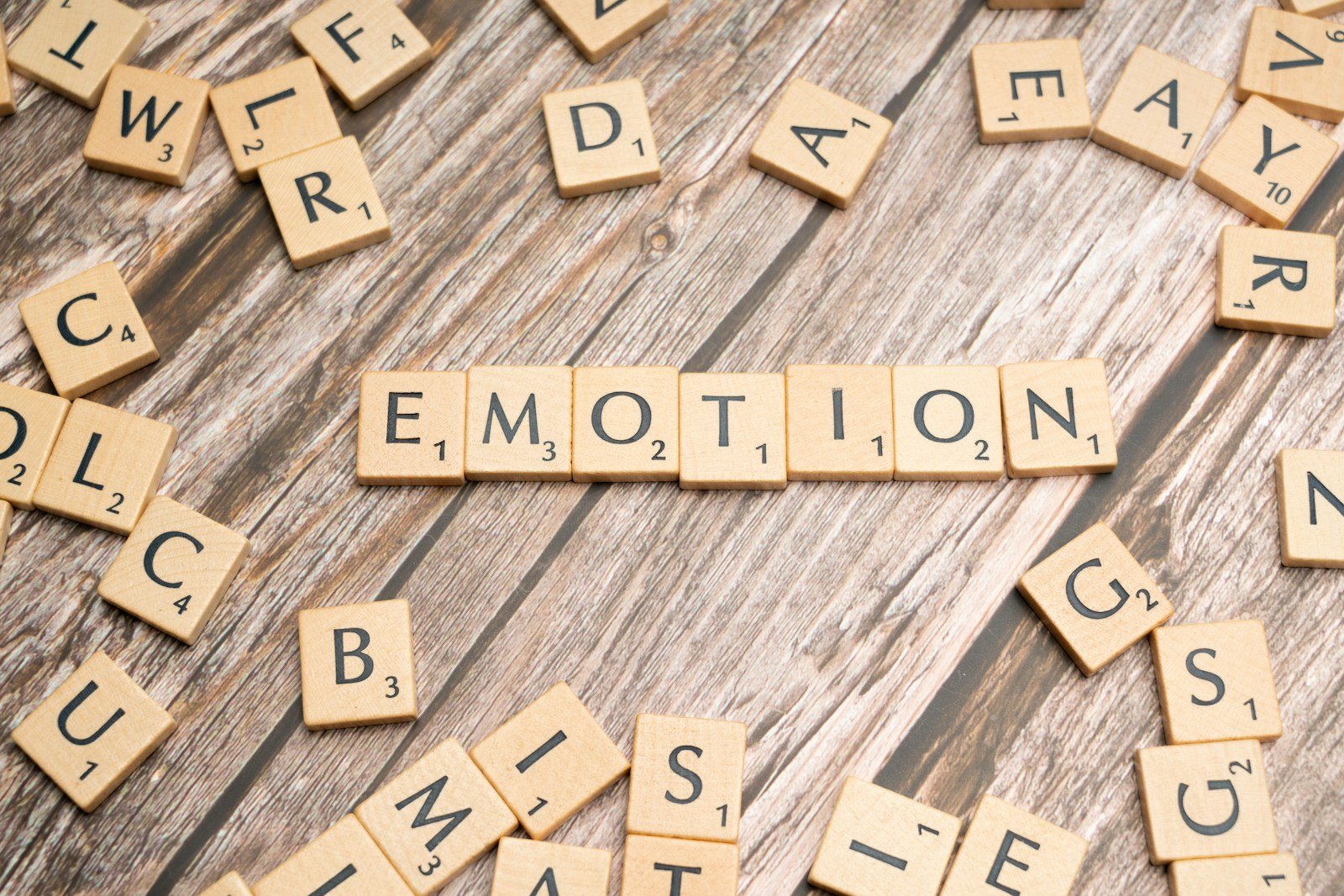How to Develop Emotional Intelligence
Many people underestimate the power of emotional intelligence in fostering meaningful relationships and personal growth. In this guide, I will share practical steps that you can implement to enhance your emotional IQ, allowing you to better understand your emotions and those of others. By focusing on self-awareness, empathy, and effective communication, you can significantly improve your emotional intelligence and navigate life’s challenges with greater ease. Let’s explore how you can commence on this transformative journey together.
Key Takeaways:
- Practice self-awareness by regularly reflecting on your emotions and recognizing how they influence your thoughts and actions.
- Improve your empathy skills by actively listening to others and trying to understand their perspectives and feelings.
- Develop effective communication skills to express your emotions and thoughts clearly and constructively.
- Learn to manage stress and regulate your emotions through techniques such as mindfulness, deep breathing, or journaling.
- Seek feedback from others to gain insights into your emotional responses and identify areas for improvement.
The Psychological Framework of Emotional Intelligence
Decoding Self-Awareness
Self-awareness is the cornerstone of emotional intelligence, allowing you to recognize and understand your own emotions in various situations. By actively reflecting on your feelings, you start to unravel the motivations behind your behaviors. This can lead to a clearer understanding of how your emotions impact your decision-making processes and your interactions with others. For instance, I often find that my mood can significantly influence how I approach a challenging task; recognizing this tendency helps me manage my responses more effectively, fostering better communication within my team.
Various tools can enhance self-awareness, such as journaling or mindfulness practices. These techniques allow you to explore your thoughts and feelings without judgment, providing insights into your emotional triggers. For example, I’ve found that taking a few moments to jot down my feelings after a significant event helps me process my reactions and learn from the experience, ultimately enhancing my emotional awareness over time.
The Role of Empathy in Emotional Literacy
Empathy forms a vital component of emotional intelligence, serving as the bridge between understanding our own emotions and recognizing those of others. Engaging in empathetic listening helps you to perceive emotions beyond verbal communication, allowing for a deeper connection with people around you. In my experience, when I focus on fully understanding a colleague’s feelings during a discussion, it fosters trust and opens the door for more authentic communication.
Research suggests that individuals with heightened empathetic abilities often experience stronger interpersonal relationships and enhanced teamwork. For instance, during a project where team dynamics were tense, I noticed that by acknowledging and validating my colleagues’ emotions, I was able to diffuse conflict and encourage collaboration. This aspect of emotional intelligence not only benefits individual relationships but can transform group dynamics significantly.
Understanding the nuances of empathy also involves recognizing its limits. While I strive to empathize with others, I remain aware that emotional fatigue can arise when I overextend myself. Balancing empathy with self-care ensures your emotional energy remains sustainable, ultimately allowing you to provide the support and understanding others need while also looking after your emotional well-being.
Mastering Self-Regulation Techniques
Strategies for Emotional Control
Emotional control strategies serve as a personal toolkit, equipping you to navigate turbulent feelings. One effective method I’ve adopted is the practice of mindfulness, which enables me to acknowledge emotions as they arise without overwhelming me. For instance, when frustration surfaces, pausing to take deep breaths and reassessing the situation allows me to respond rather than react impulsively. Additionally, engaging in cognitive reframing helps me shift my perspective. By consciously identifying a negative emotion and reframing it—for instance, viewing a setback in a project as a learning opportunity—I not only soften the impact but also cultivate a more adaptable mindset.
Another powerful practice is the use of positive self-talk. Affirmations can be incredibly helpful during moments of anxiety or doubt. I might remind myself, “I am capable of overcoming challenges” or “I can handle this situation.” This simple shift in dialogue acts as a buffer against emotional overwhelm and encourages a proactive approach. Keeping a journal also promotes emotional awareness by documenting my feelings and responses, revealing patterns and triggers over time. This not only aids in future regulation but also fosters a deeper understanding of my emotional landscape.
Building Resilience Through Emotional Agility
Fostering resilience requires embracing emotional agility—an ability to pivot and navigate life’s uncertainties effectively. When I experience emotional turbulence, I focus on maintaining a flexible mindset. This means not clinging too tightly to specific emotions or outcomes, allowing myself to flow with the changes. An example of this occurred during a challenging work assignment. Instead of fixating on my initial disappointment over a client’s feedback, I recognized the need to adapt my approach. Embracing the feedback as constructive allowed me to adjust my strategies without feeling defeated, ultimately leading to a more successful outcome.
Incorporating practices such as meditation and physical activity also enhances my emotional agility. Engaging in regular exercise not only boosts my mood through endorphins but also provides a channel for stress release. Moreover, meditation sharpens my ability to remain present, helping to clear away mental clutter. Considering statistics, research shows that resilience can be fostered through purposeful actions and habits. For instance, individuals who practice emotional agility report a 70% increase in their overall emotional well-being and a significant reduction in stress-related symptoms.
Enhancing Interpersonal Skills for Effective Communication
Active Listening and Feedback Loops
I find that active listening often gets overlooked in everyday conversations. Truly engaging with someone means paying attention not just to their words, but also to their body language and emotional cues. For instance, I often nod or maintain an open posture to signal my attentiveness. Reflecting back what I hear is a powerful tool; when someone shares their thoughts, summarizing their main points not only demonstrates that I am engaged but also encourages them to elaborate further. Research shows that effective active listening can reduce misunderstandings by up to 60%, enhancing the overall quality of communication.
Creating feedback loops is another effective strategy I’ve incorporated into my interactions. After expressing my understanding, I usually invite the other person to add any missing points or clarify their thoughts. This can look like asking, “Is there more on that topic you’d like me to know?” This collaborative approach fosters a sense of community and trust, making it easier to exchange ideas and tackle any underlying issues.
Navigating Difficult Conversations with Tact
Difficult conversations can feel daunting, but I’ve learned that approaching them with tact lays a solid foundation for effective dialogue. Keeping a calm demeanor and using “I” statements to express my feelings helps to prevent defensive reactions. For instance, instead of saying, “You never listen to me,” I might say, “I feel unheard when I don’t receive feedback on my ideas.” This slight shift creates a non-confrontational atmosphere and facilitates a more constructive exchange. I also focus on seeking common ground, allowing both parties to feel acknowledged while steering the conversation towards mutual solutions.
A skill I’ve developed is maintaining an awareness of emotional undercurrents during these discussions. Noticing changes in tone or body language lets me adjust my approach in real time. If I sense rising tension, I might pause and validate the other person’s feelings before proceeding further. Using empathetic responses lowers defenses and encourages openness, allowing for a more rich and productive dialogue.
Navigating difficult conversations requires a delicate balance of assertiveness and empathy. I’ve found that preparing mentally beforehand can help alleviate anxiety. Visualizing the conversation and considering potential outcomes allows me to approach the discussion with a clear mindset. By maintaining respect for the other person’s perspective, even when I disagree, I create an opportunity for understanding and collaboration that is often transformative.
Leveraging Emotional Intelligence in Leadership
Inspiring Teams Through Emotional Connection
Building emotional connections with your team fosters an environment where everyone feels valued and heard. I found that sharing authentic stories about my experiences can break down barriers and create trust among team members. When I open up about challenges I’ve faced, it encourages others to share their own experiences, which strengthens the bond within the group. You can also utilize collaborative storytelling during team meetings, enabling each member to contribute their personal anecdotes. This aspect of emotional intelligence not only boosts morale but significantly enhances team alignment toward shared goals.
Utilizing empathy as a leadership tool can also inspire your team. I make it a point to understand the individual motivations and emotions of my team members. By recognizing their challenges and celebrating their successes, I cultivate a deeper connection that translates into increased engagement and loyalty. For instance, during performance reviews, rather than merely discussing metrics, I ensure I acknowledge the hard work and struggles that went into achieving those results. This approach not only builds trust but also inspires others to contribute positively to the team’s dynamic.
Creating a Culture of Emotional Awareness
Establishing a culture of emotional awareness is pivotal for sustained success in any organization. When team members feel comfortable discussing their emotional responses to tasks and projects, it fosters open communication. I’ve implemented regular check-ins where we explore not only progress on assignments but also emotional well-being. This practice sends a clear message that emotional health is just as important as performance metrics. I invite feedback about how the team feels about their workloads, encouraging transparency and a deeper understanding of one another’s perspectives.
Such a culture encourages team members to be more attuned to their emotions and those of their colleagues. Introducing workshops focused on emotional intelligence and communication can effectively equip your team with the tools to navigate emotional landscapes. By dedicating time to role-playing scenarios that require empathy and self-awareness, I have seen firsthand how it contributes to a more resilient and cohesive team. Adopting these practices creates an atmosphere conducive to psychological safety, allowing your team to thrive while being supported emotionally.
Practical Exercises for Daily Emotional Growth
Journaling and Reflection Practices
Journaling has become one of my go-to methods for fostering emotional intelligence. The act of writing allows me to process thoughts and feelings that might otherwise get tangled in my mind. I find that setting aside at least ten minutes each day to jot down my thoughts can lead to unexpected insights. Not only does it provide clarity, but it also acts as a mirror reflecting my emotional state. When I pen down my experiences and reactions to various situations, I often spot patterns—such as recurring triggers or themes in my emotional responses—that inform my growth. For instance, I might write about a difficult conversation with a colleague and later realize that my feelings were rooted in past experiences rather than the present interaction itself.
This practice also fosters self-awareness. After maintaining my journal for a few weeks, I can look back and see how I’ve evolved emotionally. I assess my entries to identify moments where I demonstrated resilience or instances where my emotional reactions weren’t aligned with my values. This retrospection builds a baseline of my emotional journey, assisting not only in growth but also in setting future emotional goals.
Mindfulness Techniques for Emotional Clarity
Incorporating mindfulness practices into my daily routine has significantly enhanced my emotional clarity. Techniques such as guided meditations and deep-breathing exercises have taught me to pause before reacting, allowing me to process my feelings rather than merely react to them. For instance, during a stressful situation, I now practice grounding techniques like focusing on my breath for a few moments, which helps center my attention and brings me back to the present moment. This practice has proven effective in transforming potential emotional escalations into calm reflections, letting me choose my responses more purposefully.
Mindfulness isn’t just about meditation; it extends to everyday activities. By being fully present during conversations, whether with friends or family, I am better equipped to empathize and truly listen. Simple acts like eating mindfully or taking a short walk while paying attention to my surroundings ground me and enrich my emotional experiences. Research indicates that regular mindfulness can lead to better emotional regulation and resilience, helping me navigate life’s highs and lows with a composed mindset.
Summing Up
So, as I reflect on the path to enhancing emotional intelligence, I recognize that it’s a journey requiring both self-awareness and active practice. By taking time to understand my own emotions and the emotions of those around me, I can foster stronger personal and professional relationships. Engaging in activities such as reflective journaling, mindfulness exercises, and effective communication techniques helps improve this skill set. Every small step I take contributes to creating a deeper understanding of myself and enhances my interactions with others.
Additionally, I encourage you to explore resources that provide guidance and techniques aimed at developing emotional intelligence. For instance, the insights found in How to Develop Emotional Intelligence Skills – HBS Online are invaluable in understanding specific strategies for growth. By embracing this learning, you can cultivate a heightened emotional awareness that will benefit both your personal well-being and your professional life.
FAQ
Q: What is emotional intelligence and why is it important?
A: Emotional intelligence (EI) refers to the ability to understand and manage your own emotions, as well as recognize and influence the emotions of others. It plays a significant role in effective communication, conflict resolution, and building strong relationships both personally and professionally. High emotional intelligence can enhance teamwork, leadership skills, and overall well-being.
Q: How can I improve my self-awareness as part of developing emotional intelligence?
A: Improving self-awareness involves regularly reflecting on your thoughts, feelings, and behaviors. Journaling can be an effective tool for this; noting your emotional responses in different situations allows you to analyze patterns and triggers. Additionally, seeking feedback from trusted colleagues or friends can provide external perspectives on how you present yourself and interact with others.
Q: What techniques can I use to manage my emotions effectively?
A: Managing emotions involves several strategies such as practicing mindfulness and deep breathing exercises, which can help calm your mind during stressful situations. Cognitive restructuring, or changing negative thought patterns to more positive ones, can also assist in managing emotional responses. Engaging in regular physical activity and ensuring sufficient rest can additionally promote emotional stability.
Q: How do I develop empathy toward others?
A: Developing empathy starts with active listening. Focus fully on the speaker, avoiding interruptions, and respond thoughtfully. Practice viewing situations from others’ perspectives, which can deepen your understanding of their feelings and reactions. Participating in diverse social settings and communities can also broaden your perspective, allowing you to connect with various life experiences.
Q: What role does emotional intelligence play in leadership?
A: Emotional intelligence plays a vital role in effective leadership by enabling leaders to communicate more clearly, motivate their teams, and resolve conflicts efficiently. Leaders with high EI can create a positive work environment that fosters trust and collaboration. They are often more adaptable to change and better equipped to manage stress, ultimately leading to improved performance within their teams.








